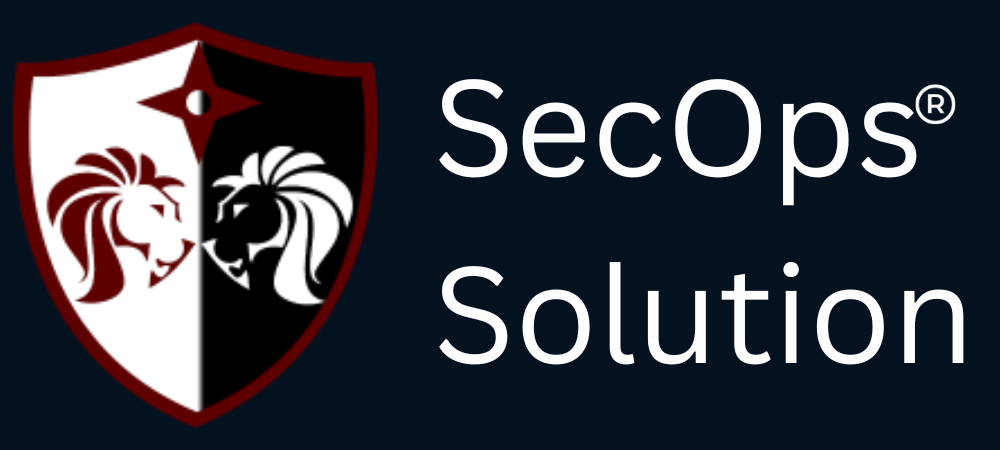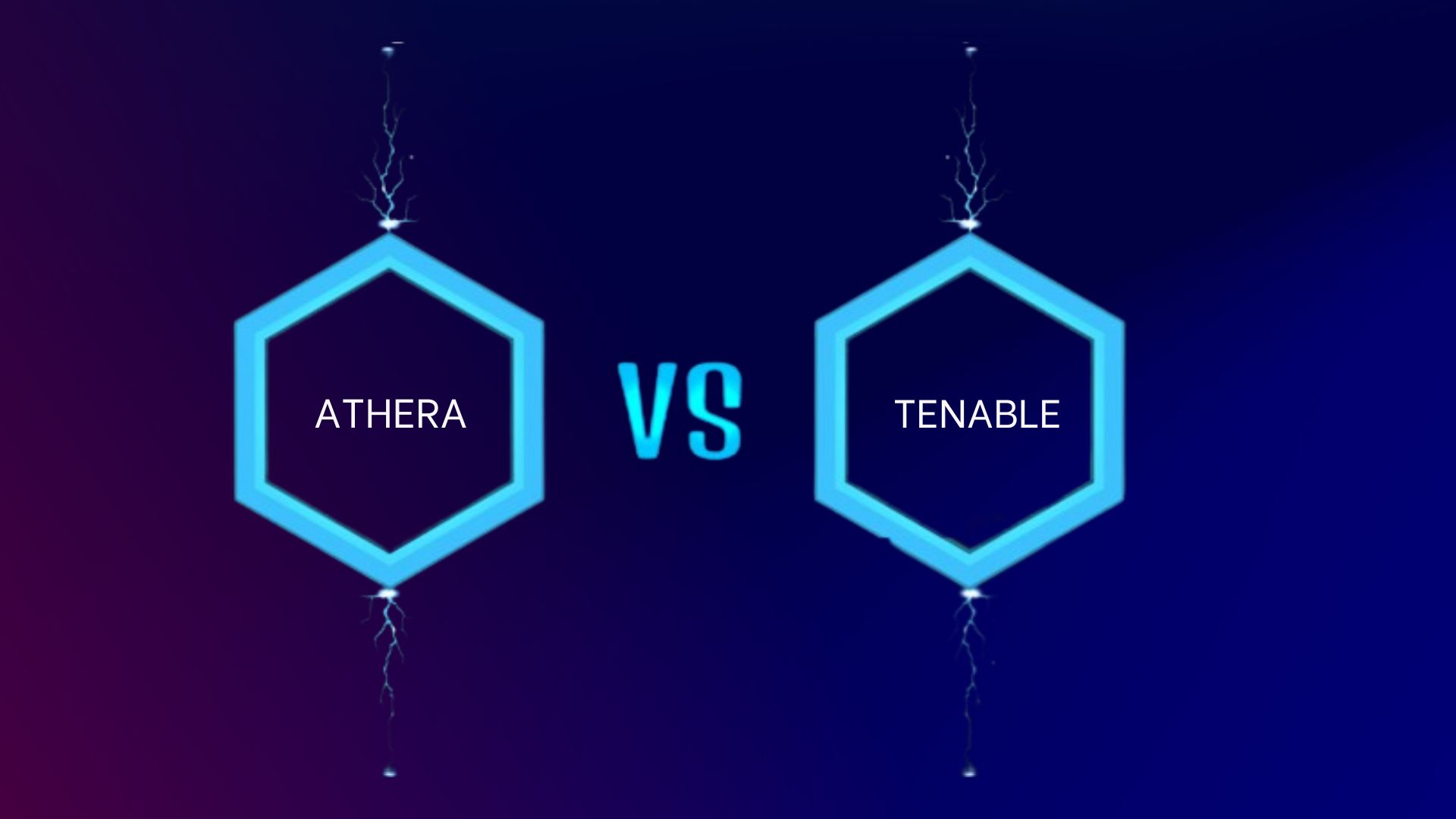
Agentless security for your infrastructure and applications - to build faster, more securely and in a fraction of the operational cost of other solutions

hello@secopsolution.com

In the rapidly evolving cybersecurity landscape, organizations face an increasingly complex challenge: identifying, prioritizing, and remedying vulnerabilities across their digital infrastructure. Two prominent players in the vulnerability management space are Tenable's Nessus Pro and SecOps Solutions' newly launched Athera platform. This comprehensive comparison examines both solutions across critical dimensions to help security professionals make informed decisions.
Tenable Nessus Pro represents the established market leader with decades of refinement, offering robust on-premises vulnerability scanning with extensive customization capabilities. Athera, SecOps Solutions' newest offering, emerges as a cloud-first alternative that emphasizes modern deployment flexibility, advanced risk prioritization, and streamlined remote scanning capabilities.
The choice between these platforms often comes down to organizational priorities: established workflows versus modern cloud-native approaches, extensive customization versus streamlined operations, and traditional licensing models versus flexible SaaS pricing.
Athera positions itself as a modern, cloud-native vulnerability management platform offering both Software-as-a-Service (SaaS) and on-premises deployment options. This dual approach provides organizations with deployment flexibility while maintaining the benefits of cloud-based management and updates.
The platform's cloud-first design enables security teams to initiate and manage scans remotely through a centralized dashboard, eliminating the traditional constraints of being physically present at scanning locations. This architecture particularly benefits distributed organizations and remote security operations.
Nessus Pro maintains its established on-premises deployment model, requiring installation on dedicated systems within the target network environment. While this approach provides direct network access and potentially reduced latency, it also introduces operational constraints, particularly for organizations managing multiple network segments or remote locations.
The on-premises model necessitates physical or VPN access to target networks, which can complicate scanning operations in distributed environments or when security teams work remotely.
Both platforms support authenticated and unauthenticated scanning modes, providing comprehensive vulnerability detection capabilities. However, their approaches to network accessibility differ significantly.
Athera's Jump Host Innovation: Athera introduces lightweight jump host functionality, enabling agentless scanning within closed or segmented networks for both Windows and Linux environments. This capability addresses one of the most persistent challenges in enterprise vulnerability management: reaching isolated network segments without compromising security boundaries.
Nessus Pro's Network Limitations: While Nessus Pro offers robust scanning capabilities within directly accessible networks, it lacks native support for jump host functionality. Organizations requiring multi-site or remote scanning typically need multiple Nessus licenses or complex VPN/port forwarding configurations, significantly increasing both cost and operational complexity.
Neither platform directly supports agent-based scanning in their core offerings. Athera acknowledges this limitation while noting that agent-based functionality is available within SecOps Solutions' broader vulnerability management platform. Similarly, Nessus Pro directs organizations requiring agent-based scanning to Tenable's enterprise offerings (Tenable.io and Tenable.sc).
Athera implements a sophisticated risk prioritization system incorporating multiple threat intelligence sources:
This multi-dimensional approach enables security teams to focus remediation efforts on vulnerabilities posing the highest real-world risk to their specific environment.
Nessus Pro leverages Tenable's mature risk assessment framework, combining CVSS scores, EPSS data, and Tenable's proprietary Vulnerability Priority Rating (VPR). The VPR system incorporates threat intelligence and real-world exploit data to provide contextual risk assessments beyond traditional vulnerability severity scores.
Both platforms recognize that raw vulnerability counts provide limited actionable intelligence without proper risk context and prioritization.
Athera provides configurable scan concurrency with granular control over parallelism at both policy and jump host levels. This flexibility enables organizations to optimize scanning operations based on network capacity and business requirements while maintaining operational efficiency.
Nessus Pro lacks direct methods for configuring scan concurrency, potentially limiting performance optimization in large-scale environments. Organizations may need to implement external orchestration or invest in additional infrastructure to achieve similar parallel scanning capabilities.
Athera's cloud-based architecture enables security teams to trigger and manage scans from anywhere with internet connectivity. This capability proves particularly valuable for organizations with distributed security operations or remote work arrangements.
Nessus Pro requires direct access to the installed system, creating potential bottlenecks when security personnel need to initiate scans from remote locations or during off-hours operations.
Both platforms provide comprehensive configuration audit capabilities with built-in compliance framework support:
Athera includes native CIS (Center for Internet Security) benchmarking with detection of misconfigurations, weak credentials, and outdated services. The platform's modern approach integrates these audits seamlessly within the vulnerability management workflow.
Nessus Pro offers extensive compliance templates covering CIS, PCI DSS, and numerous other regulatory frameworks through its mature plugin ecosystem. The platform's established compliance capabilities reflect years of regulatory requirement evolution and customer feedback.
Both platforms support standard reporting formats including PDF and CSV outputs. Athera additionally provides JSON format support, facilitating integration with modern security orchestration and automated response (SOAR) platforms.
Customization Approaches: Nessus Pro excels in report customization, allowing organizations to design fully customized report templates with flexible chapter ordering and content selection. Athera focuses on report whitelabeling capabilities while maintaining streamlined reporting workflows.
Both solutions provide CIDR and IP-based asset discovery capabilities, enabling comprehensive network enumeration and vulnerability assessment coverage. However, their approaches to asset management and ongoing discovery differ in implementation and user experience.
Athera introduces a modern SaaS pricing model with multiple options:
This pricing structure provides organizations with predictable costs and the flexibility to choose deployment models based on technical and compliance requirements.
Nessus Pro maintains per-device licensing at approximately $4,000+ annually for 256 IP addresses. While this model has served the market well historically, it can result in significant cost escalation for large-scale deployments or organizations with dynamic infrastructure.
The licensing model also creates challenges for multi-site deployments, often requiring separate licenses for each network segment or location.
Athera emphasizes a modern cloud dashboard experience designed for contemporary security operations workflows. The interface prioritizes usability and accessibility, reflecting current user experience design principles.
Nessus Pro provides a mature local interface that, while functional and feature-rich, reflects its established heritage. Organizations familiar with traditional security tools may find comfort in its proven interface design, though newer security professionals might prefer more modern alternatives.
Both Tenable Nessus Pro and Athera offer compelling vulnerability management capabilities, each with distinct advantages suited to different organizational contexts. Nessus Pro's established market presence, extensive customization capabilities, and mature compliance framework make it an excellent choice for organizations prioritizing proven functionality and deep integration capabilities.
Athera's cloud-native architecture, advanced risk prioritization, and operational flexibility position it as an attractive option for organizations embracing modern security operations and seeking streamlined vulnerability management workflows.
The decision ultimately depends on organizational priorities: established stability versus modern innovation, extensive customization versus streamlined operations, and traditional licensing versus flexible SaaS economics. Both platforms demonstrate strong technical capabilities and can effectively serve contemporary vulnerability management requirements when properly aligned with organizational needs and strategic direction.
SecOps Solution is a Full-stack Patch and Vulnerability Management Platform that helps organizations identify, prioritize, and remediate security vulnerabilities and misconfigurations in seconds.
To learn more, get in touch.